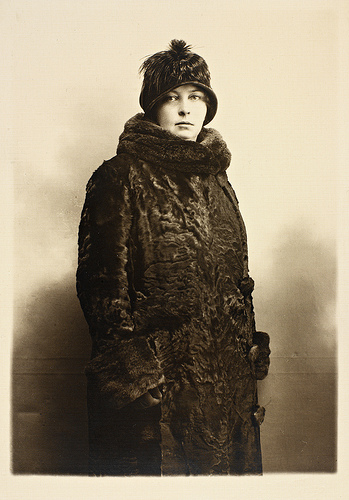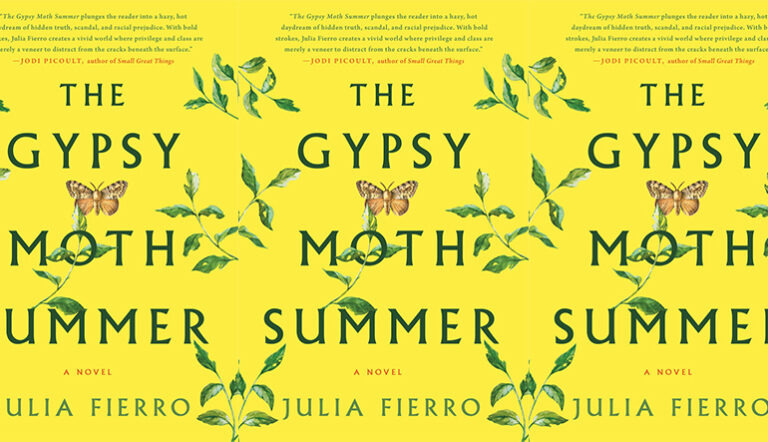Anger and Empathy in A Complicated Kindness

Like most women, I spent a large chunk of my formative years learning to suppress and ignore my anger and discomfort for the benefit of others. Though my parents always encouraged me through words and personal example to speak up and be my own person, the message sent by the world at large was more powerful: I was not to get in anybody’s way. I was to be cooperative, compatible, comfortable to deal with.
Like some women, I’ve spent a large chunk of my journey into adulthood (a journey I still don’t feel is over, even as I approach forty) unlearning this habit of suppression, coaxing myself into talk back a little sharper and a little louder each time, and releasing a seemingly endless pot of anger that had been simmering beneath the surface for years.
This anger is powerful. It is purifying. It is made up of a million big and small offenses and indignities that I tried to brush off or respond to as if they were a joke. But in letting this anger out, I’m learning that with its release comes a surprising collateral emotion: compassion. Compassion for myself for having lived through it all; compassion for the people in my life who didn’t know how to help me; even compassion for the people who hurt me, who were damaged in their own myriad ways. As a writer, I’ve found that this compassion doesn’t always read well. It is taking so much effort for us as a society to learn not to blame victims, and sometimes compassion for or even focus on perpetrators can appear insensitive, patriarchal, and in poor taste. I often think it cannot be pulled off, but Miriam Toews has proved me wrong.
In her 2004 novel A Complicated Kindness, high school senior Nomi is trapped in an isolated Mennonite town where she is living alone with her grieving, confused father following the disappearance of first her older sister, and then her mother. Nomi paints a portrait of a town where obedience and conformity are strictly enforced, mental health is ignored, and teenagers are inspired to rebel until their spirits break. Whenever a member of the community displays behaviors that are too upsetting for the town’s minister—Nomi’s uncle—to take, they are shunned and must leave their home. The result is a subset of townsfolk who live in small shacks neighboring their families, ignored by all and seen only occasionally, like a cult of living dead. Within this unsettling, stifling setting, Nomi is pushed to her limits—drinking, smoking, skipping school, and finally selling her own body for drugs. Her cool, rebellious, nonbeliever exterior is revealed to be the result of trauma compounded by trauma—her sister’s escape leaves her lonely and terrified that her favorite person is destined for an eternity in hell; her mother’s disappearance leaves her confused and in charge of taking care of her father; her best friend’s illness and ongoing hospitalization brings her face to face with the anti-scientific, cold-heartedness of her community; her boyfriend taking her virginity and then ghosting her leaves her without what she believed was her one chance at love and redemption.
As Nomi spirals into desolation, she uncovers some of the malice behind her family’s tragedy—such as her mother’s former lover, whose revenge consisted of spreading rumors about her supposed insanity, leading to her excommunication, or her uncle’s refusal to offer any comfort when she was a small child fearing for her sister’s fate. It’s easy to see and understand the developing scars, the calcifying hurt, the desire to self-harm, and—most of all—the brewing, explosive anger that Nomi feels toward so many of the people around her who either take an active part in or stand idly by as her life goes off the rails.
But the most striking, heartbreaking thing about this book is the moments of grace that Toews identifies within the pain: residents who speak to Nomi with kindness, assuring her that rule breaking is human. The nurses who go out of their way to make her sick friend more comfortable, even when there is clearly no treatment or cure for her ailment. Nomi’s devout father, who loves her with nothing but warmth and patience. And Nomi herself, who devotes her time and attention to the elderly woman her mother used to take care of, as well as to a bereaved mother who follows Nomi’s life in order to imagine what her dead son’s life would have been like. Even the awful uncle has moments of heartfelt humanity.
Pointing out the good or the relatable in difficult or bad people can be perceived as patriarchal pandering and self-erasure, but I’ve come to believe that it is actually a choice to simulate life in all of its truthful complexity, as well as a side effect of releasing bottled anger. A contemporary striking example of this can be found in the show Feel Good, which deals with sexual trauma and emotional abuse, and in which creator Mae Martin offers up—alongside buckets of righteous anger—villains in all of their contradictory fullness, including their moments of lovable goodness. The result, rather than victim-blaming or apologetics, is a portrait of pain more potent and more alive than I could ever imagine, as well as a depiction of the possibility of redemption. Neither Martin nor Toews have to forgive or forget in order to empathize.
The most startling, confounding compassion demonstrated in the book takes place within Nomi’s family: her mother is excommunicated and remains nearby until Nomi stops having terrifying dreams about her sinful sister, then leaves in the night, knowing that her husband would be torn between his religious faith and his love for her and wishing to liberate him from this impossible dissonance. Her departure leaves Nomi bound to her father, and he knows that she will not leave him no matter how unhappy he is. So when Nomi is excommunicated too, her father offers the greatest act of love available to him: he leaves the only place he’s ever belonged, excusing her from a life of dawdling around in a futureless town that has turned its back on her by removing himself from the equation, leaving her the house and the car as ingredients for a freedom of her own making, and turning her destiny from a determination to an open question. He leaves his beloved church and the only lasting meaning his life has ever had in order to give his daughter the gift of a life. And that is the most complicated kindness of all.


